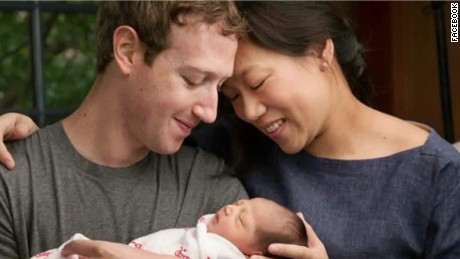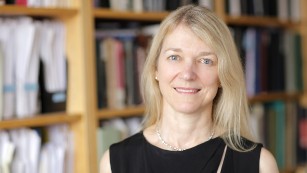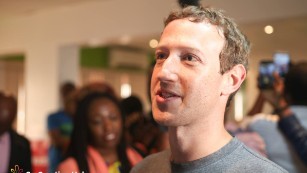Psyco-molecular Code,Rockeller's MK Ultra Mind Control,Zuckerberg's,CIA's Facebook,Cori Bargmann and the worm
The brain as the womb of the mind……
In English and Latin based languages,(unlike in Scandinavian or
Germanic or Nordic languages to my knowledge),we use one
word,’conception’,to describe either a birth or a new idea.I find the
use of the word conception to denote both birth and a new idea in
Latin based languages or English to be an amazing coincidence.
If we consider,as I do,that the brain is the ‘womb’ of the mind,it is
not surprising in light of Holger Hyden’s discoveries in the 1940′s
that the brain generates RNA and protein during learning or memory
formation that our own immune system would identify as foreign and try
to attack if not for certain properties of the brain that protect it
from our bodies own immune system such as the ‘blood-brain barrier’.
This is precisely how a fetus is protected from its mother’s own
immune system that would otherwise recognize the fetus’ own protein as
foreign to her own body and attack the fetus itself as in invading
foreign organism if not for the womb protecting the fetus from the
mother’s own immune system.
Likwise the brain filters out attacks by our own immune system so that
new memories,experience and ideas can be formed as ‘extra-genetic’ RNA
and protein that in any other part of our body would otherwise be
attacked by our own immune systems as foreign or invading protein.
http://edition.cnn.com/2016/09/23/health/cori-bargmann-chan-zuckerberg-initiative/
The neuroscientist who's spending the Chan Zuckerberg $3 billion

Mark Zuckerberg announces baby's birth, major initiative 03:52
Story highlights
- A neuroscientist and geneticist, Cori Bargmann built her career studying a type of roundworm
- She was named president of $3 billion Chan Zuckerberg Science
- The cell atlas aims to identify every cell type in the human body and its molecular components
(CNN)Hearing
the words "$3 billion," most of us felt vaguely stunned, so we missed
hearing what came next during Wednesday's announcement from Facebook
founder Mark Zuckerberg and Dr. Priscilla Chan. The Silicon Valley couple also introduced the world to the new president of Chan Zuckerberg Science -- now perhaps the most influential scientist on the planet.
"One
of the world's most respected neuroscientists and geneticists" and a
"legitimate rock star," Chan gushed from the San Francisco stage: "Great
efforts take great leaders, and today we are pleased to welcome Cori
Bargmann."
Cori Bargmann and the worm
"I've
always been a really curious person," said Bargmann, a professor at the
Rockefeller University in New York who studies the biology of the
brain. "You can put anything in front of me, and I'll read it. The first
time I went into a scientific laboratory and I realized that I could
discover things that no one had ever discovered before, that just
satisfied my curiosity in the most gratifying way. And I've never looked
back."
Born in 1961, she and her
family moved to Georgia when she was a child. She is married to Nobel
laureate Richard Axel, a neuroscientist at Columbia University.
The journey from Mr. Clark's 10th-grade chemistry class to her new job as
president of Chan Zuckerberg Science has included a bachelor's degree
in biochemistry from the University of Georgia and a Ph.D. in cancer
biology from the Massachusetts Institute of Technology.
Her research (PDF) has focused on Caenorhabditis elegans, a tiny, deaf and blind roundworm with just 302 neurons.
Many
of the worm's genes are similar to those of mammals, and scientists can
map the detailed wiring of its nervous system -- each cell-to-cell
connection. This has allowed Bargmann to study how genes, the
environment and experience interact to shape an animal's behavior.
Ultimately, insights gained from studying the nervous system of this
worm have led to some understanding of how human behavior is influenced
by internal states, including stress, hunger and fear.
Along
with teaching and heading a prestigious lab at Rockefeller, Bargmann
recently co-chaired the National Institutes of Health committee that set
the strategy for the Brain Research through Advancing Innovative
Neurotechnologies (BRAIN) Initiative. All these responsibilities helped
prepare her for her latest challenge.
End of the century
Bargmann's
new job will be, in Chan's words, "to build out the strategy and
partner with academia, biotech and engineering" to help realize the
vision of the initiative. In practical terms, she will oversee a
multibillion-dollar effort and work closely with the Chan Zuckerberg
Initiative's science advisory board to support and help bring research
to fruition.
Presiding over the
initiative, she will act as the Science Whisperer, even if most of her
colleagues approach her as a demigod. Yet what inspired Bargmann to sign
on to this formidable job was the long timeframe for its ultimate goal:
to "cure, prevent and manage all major diseases by the end of the
century."
As
Bargmann sees it, roughly 80 years till the end of the century may be
needed to identify and support the basic science that will lead to
transformative discoveries in medicine.
To
illustrate why such a long span is necessary, she spoke of how in the
1970s and 1980s, scientists concentrated on studying viruses that infect
human cells and animal cells because they thought it would be important
to know, in a general way, how viruses cause disease.
"One
of the viruses that was studied was the rous sarcoma virus, a virus
that affects chicken," she said. Though you might think this chicken
virus had nothing to do with human viruses, rous sarcoma virus was the
first retrovirus to be studied. Later, in 1983, when the retrovirus
known as AIDS was identified, the knowledge gained from working on a
mere chicken virus enabled relatively rapid progress in developing
treatments for that disease.
Bargmann
said she hopes to fund similar research building blocks to serve as a
foundation for understanding some of the towering issues of science.
Creating a cell atlas
So
what's on her list of proposed projects for the Chan Zuckerberg
Initiative and the new "Biohub" partnership between University of
California, San Francisco; Stanford; and University of California,
Berkeley?
"The Chan Zuckerberg
science plan is to focus on developing the technologies for making a
cell atlas," she said. "We want to identify every cell type in the human
body, their location, their numbers, their neighbors and their
molecular components."
Essentially,
creating a cell atlas is an engineering problem, said Bargmann, "just
as the human genome was an engineering problem ... and putting a man on
the moon was an engineering problem."
As
she sees it, a cell atlas is similar in scope and in vision to the
Human Genome Project, in which scientists from around the world mapped
the genetic blueprint that creates a human being. Like that project,
Bargmann thinks a Cell Atlas will require "a lot of different partners
working together, different organizations, different funding agencies,
multiple countries, extensive collaboration."
Bargmann's
view that collaboration and technology are essential to solving the
"next generation of challenging problems" is shared by Chan and
Zuckerberg. After all, the founder of Facebook views science through a
familiar lens of technology and networking.
Science networks
"Most
of the big breakthroughs that have happened through the history of
science are not done by a single person, but they're done by groups of
scientists either working together or working separately and sharing
data or building tools to push the whole field forward," Zuckerberg said
during Wednesday's announcement. "If you can make those connections
happen faster, then you take progress that might have taken 10 or 15
years for people to make those connections, and you make that happen
now."
In selecting a science
president, Chan and Zuckerberg spent the past couple of years talking to
scientists all over the country, Chan explained, and that pointed them
toward Bargmann.
"Mark and Priscilla have been taking this idea of going into science incredibly seriously," Bargmann said.
Chan
and Zuckerberg are "refreshing people to work with," she said, not only
"open to other people's ideas" but still open to learning. Yet, there's
one more important commonality between Bargmann and the couple from
Silicon Valley.
"My father worked
at Watson Laboratories, which was the IBM experimental computer science
laboratory from 1961 to 1965 at the birth of computing," she said,
adding that as the daughter of a computer scientist and statistician,
she's had exposure to progressive technologies for most of her life.
Did that help Chan and Zuckerberg choose her? Bargmann said, "Absolutely not. I don't believe he knows that."


No comments:
Post a Comment